'The Longest Shadow': After 20 years at war, one question remains: What was it for?
ABC News airs a five-part documentary series on the 9/11 attacks, Sept. 6-10.
The sky was clear and blue. The gray towers stood, both guarding and welcoming, at the gateway to the nation. Out of nowhere came the impact, the blaze, the smoke -- and then the towers were gone. When the dust and flames finally cleared, a new world had emerged.
The death and destruction defined that late summer day and remain seared in the minds of those who lived through Sept. 11, 2001. From the ashes and wreckage rose a new America: a society redefined by its scars and marked by a new wartime reality -- a shadow darkened even more in recent days by the resurgence of fundamentalist Islamist rule in the far-off land that hatched the attacks.
Twenty years later -- with more than 70 million Americans born since the crucible of the attacks -- the legacy of 9/11 remains. From airport security to civilian policing to the most casual parts of daily life, it would be nearly impossible to identify something that remains untouched and unaffected by those terrifying hours in 2001.
This week, ABC News revisits the 9/11 attacks and unwinds their aftermath, taking a deep look at the America born in the wake of destruction. "9/11 Twenty Years Later: The Longest Shadow" is a five-part documentary series narrated by George Stephanopoulos. Episodes will air on ABC News Live each night leading up to the 20th anniversary of the attacks, from Sept. 6-10. The series will be rebroadcast in full following the commemoration ceremonies on Saturday, Sept. 11.
Part 3: Wars in a far-off land
"America is under attack," White House Chief of Staff Andy Card whispered into the ear of his boss, President George W. Bush, during a photo-op at a school in Florida. Moments before, hijacked jetliners had careened into the World Trade Center's Twin Towers in New York City.
The fallout would mobilize part of a new generation of Americans to answer the call of duty -- and join a pair of "forever wars" half a world away.
Among those who felt the pull was recently retired U.S. Navy SEAL officer Dan O'Shea. The shock of 9/11 would mean rejoining the Navy. O'Shea had no illusions about what would lie ahead: "Everyone felt like this was the mission that had to be done," he said.
At Columbia University, Loren Crowe was taking his seat in a freshman calculus class when the first plane made impact just seven miles to the south. The attacks galvanized his resolve to join the U.S. Army. He eventually endured two deployments in Afghanistan as an infantry officer.
"My entire adult life has been spent in the shadow of the Twin Towers falling," Crowe told ABC News recently. "I gave up my time, my youth, my health."
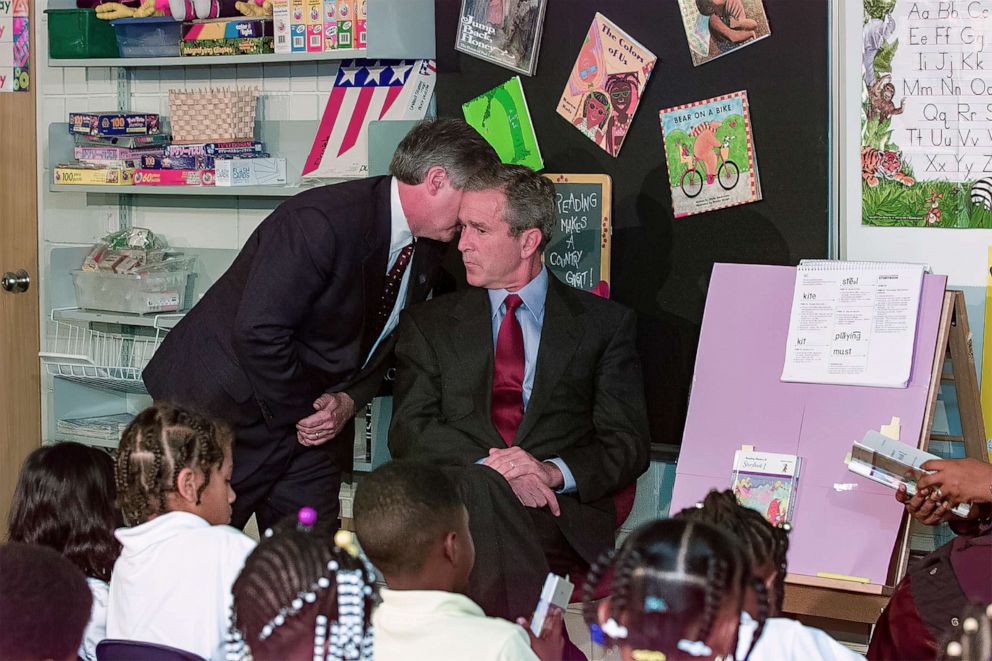
For Dave Sharrett, an English teacher in Northern Virginia, the 9/11 attacks provoked a different reaction -- one of deep dread when his son, a tenacious teenage football standout who bore his own name, David H. Sharrett II, would follow his deep desire to serve America by joining the military.
"I would be thinking at that time, 'The worst thing that could ever happen to me would be if my child was taken from me,'" Sharrett recalled.
The 9/11 attacks altered the fate of all three -- Crowe, O'Shea, and Sharrett -- and hundreds of thousands of others who joined the protracted fights. As those who served reflect on the past two decades and grapple with the unfathomable costs of life, many wonder what the U.S. got in return. It's a question that has returned to the forefront in recent days as America's engagement in Afghanistan came to a close, amid chaos and a return to power for the Taliban regime that 20 years ago had given safe harbor to Osama bin Laden and his al-Qaeda terrorists who attacked on Sept. 11, 2001.
"We really do have to take the time to think, what exactly is our mission? What exactly are we trying to accomplish? I don't think much thought was given to any of those basic principles," said Leon Panetta, the former defense secretary and CIA director who inherited the first years of troubled invasions in Afghanistan and Iraq. "Rather than achieving the kind of victory that I think everybody thought would happen, it blew up on all of us."
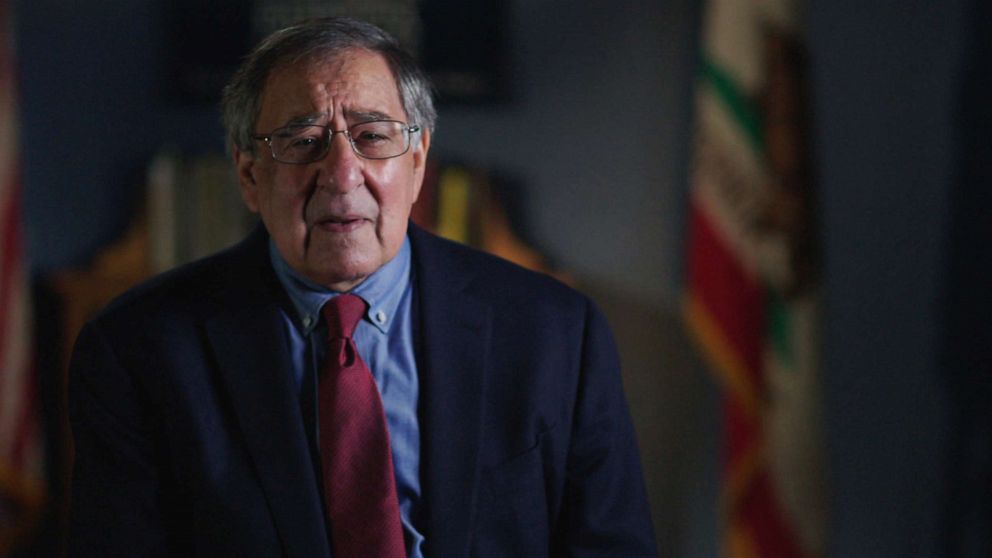
Within weeks of the 9/11 terror attacks, with the Pentagon still smoldering, American leaders plotted steps to hold those responsible to account. But who to fight? Where to start?
The immediate goal of the Bush administration was twofold: to seek justice for 9/11 and to secure the homeland. The decision to begin a combat offensive in Afghanistan first "was not just retaliation," said John Bellinger, a former National Security Council chief lawyer in the Bush White House, "but to prevent more attacks."
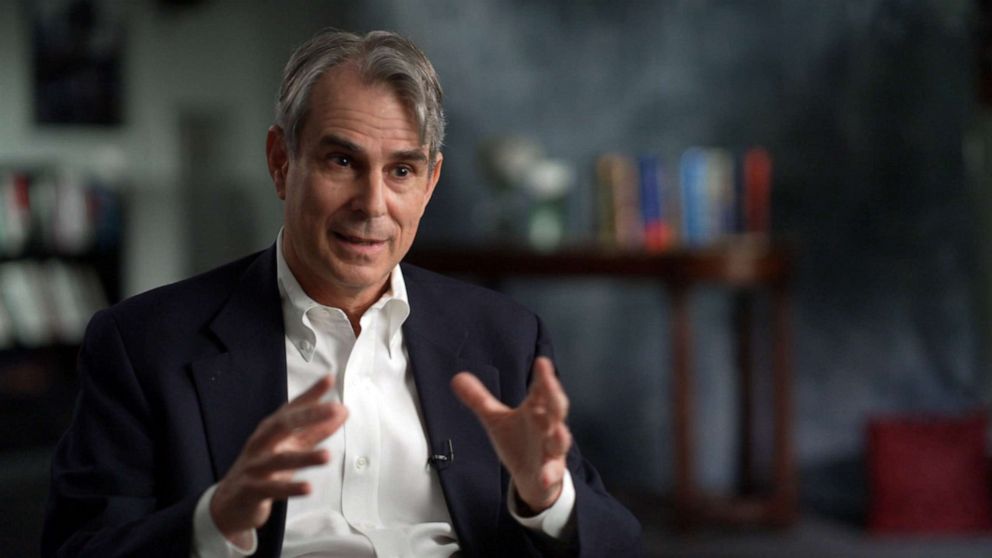
The mission proved successful -- at the start. Within weeks of its invasion, American special operations forces -- including Green Berets who galloped down on horseback from the north -- had dismantled Taliban leadership in Kabul. The Islamist militant group had established power in Afghanistan toward the end of the 1990s and forged close bonds with al- Qaeda and its leader, who was obsessed with forcing the United States out of Muslim lands.
Complicating matters was the U.S.-led invasion of Iraq on March 19, 2003. With the Afghanistan mission plowing ahead in 2002, American leaders publicly claimed that Iraqi President Saddam Hussein was poised to obtain weapons of mass destruction -- and perhaps level a fresh round of attacks against the West.
"There was concern that Saddam Hussein was developing a relationship with al-Qaeda … that Saddam Hussein did have weapons of mass destruction and might consider sharing those with al-Qaeda," recalled Alberto Gonzales, White House counsel during Bush's first term. "And that was a deal breaker. That was a red line."
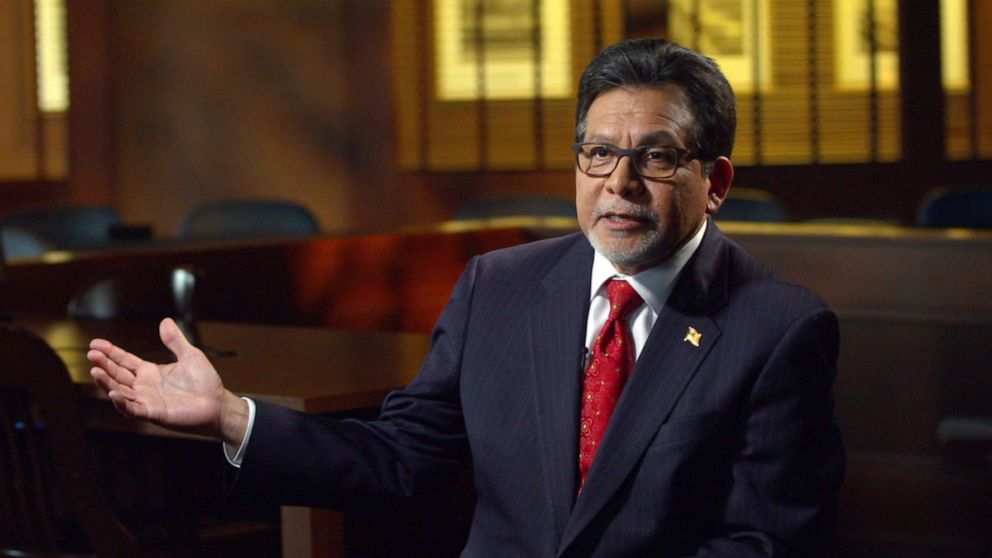
After the 2003 invasion of Iraq, Dan O'Shea thought the operation was going well. He sent a letter about the fall of Baghdad to a friend and said that the demise of Saddam Hussein was going to bring a brighter future to Iraqis.
"I said, 'We have a long way to go with this, but, you know, we're on our way to getting this job done right.' And I look back now, and I read that email, and I think, 'Dan, you were naive on so many levels'," he told ABC News.
As deployments piled up for American servicemembers over the years, the distance between the forward operating base and the living room expanded. The initial victories in Baghdad and the removal of Saddam Hussein from power gave way to a protracted occupation -- an endless cycle of missions, fallen friends, and missed holidays at home.
"You judge your deployments by -- you're missing what holidays. Are you missing Thanksgiving, Christmas, or are you missing Fourth of July? The ones that mean a lot to veterans, especially, Veterans Day and Memorial Day, of course," said O'Shea, who led hostage recovery efforts in Iraq and later was a counterinsurgency adviser in Afghanistan.
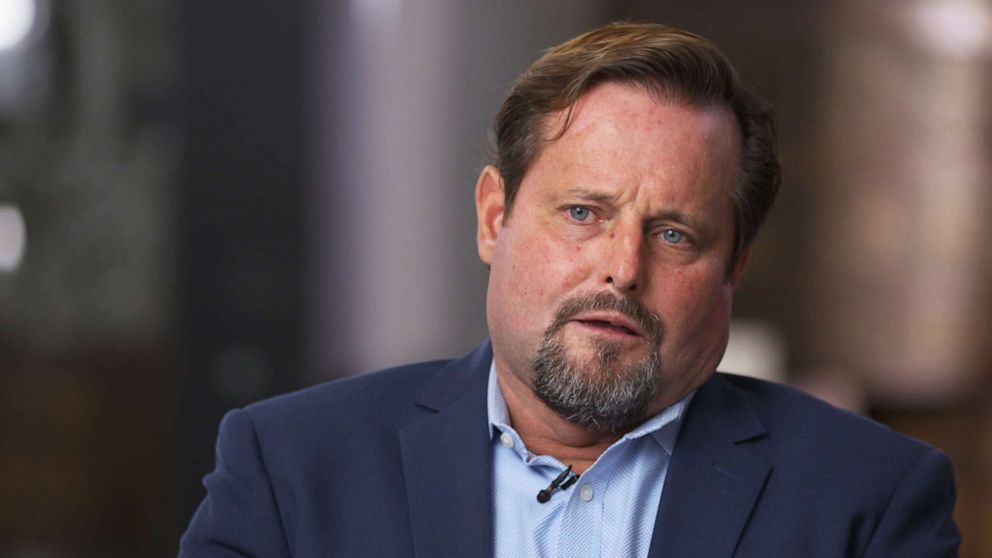
Yet O'Shea said that often, while home, he couldn't bring himself to attend holiday events with friends and family -- instead opting to spend them alone on the couch.
Meanwhile, the initial rationale for the Iraq invasion quickly fell apart.
The fall of Baghdad had happened swiftly. But the CIA-led search for Saddam Hussein's elusive weapons of mass destruction came up empty, as did the alleged relationship his regime had with al-Qaeda, years of investigation later found. Under interrogation by the FBI in 2004, the captured dictator said his posturing before the U.S. invasion was to convince Iran -- not America -- that he had WMDs so that they would not realize how weak Iraq was militarily. The two neighboring countries had fought a war from 1980-1988.
"There was not good intelligence," said Card, Bush's chief of staff. "One of the things we learned going into Iraq is that we did not have good intelligence."
The Bush White House faced accusations of misleading the public about the weapons of mass destruction. A 2008 Senate Intelligence Committee report concluded that Bush administration officials who sought to link the Iraqi government to al-Qaeda were "not substantiated by the intelligence." Bush himself later conceded that he "had a sickening feeling every time I thought about" the failure to find weapons of mass destruction.
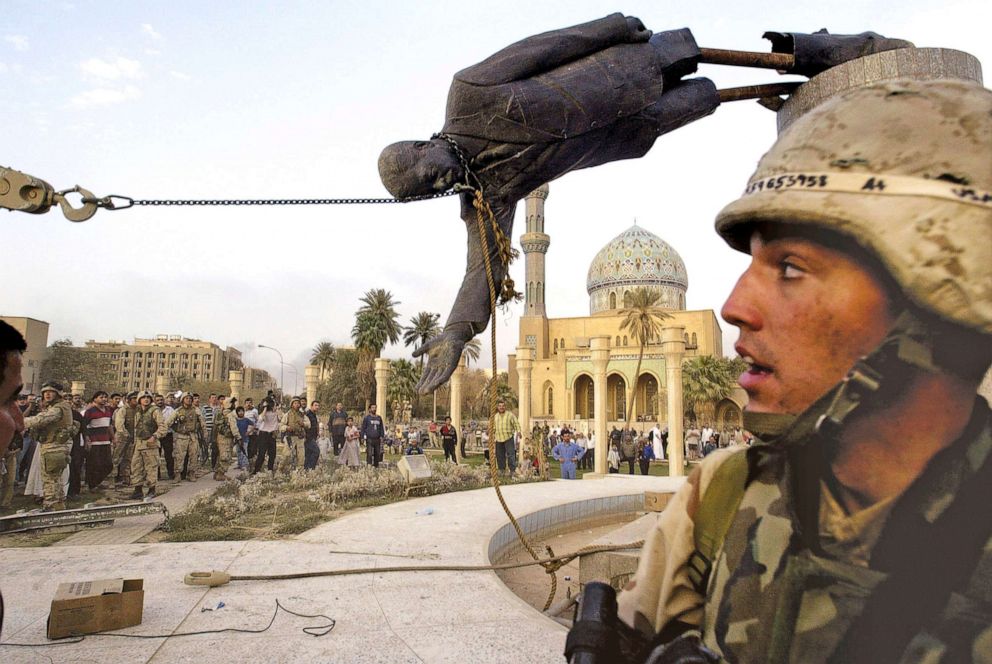
"No one was more shocked and angry than I was when we didn't find the weapons," he wrote in his memoir, "Decision Points."
Critics said that in addition to not being guided by intelligence, the administration made misplaced foreign policy assumptions about Iraq -- and the consequences were immense. Invading Iraq redirected resources such as U.S. Army Special Forces teams from Afghanistan, before al-Qaeda and the Taliban had been fully neutralized and Osama bin Laden had been killed.
"Starting a whole new war in Iraq at a time that we were preoccupied in Afghanistan … I do think it resulted in stretching ourselves too thin and taking our eye off the ball," said Bellinger.
Furthermore, missteps by the U.S. military began to undermine its sympathetic image on the world stage. In 2004, revelations of torture and sadism at the Abu Ghraib prison in Iraq prompted shock and anger both domestically and abroad. Images showing U.S. servicemembers abusing and humiliating Iraqis incarcerated at the prison sparked scandal.
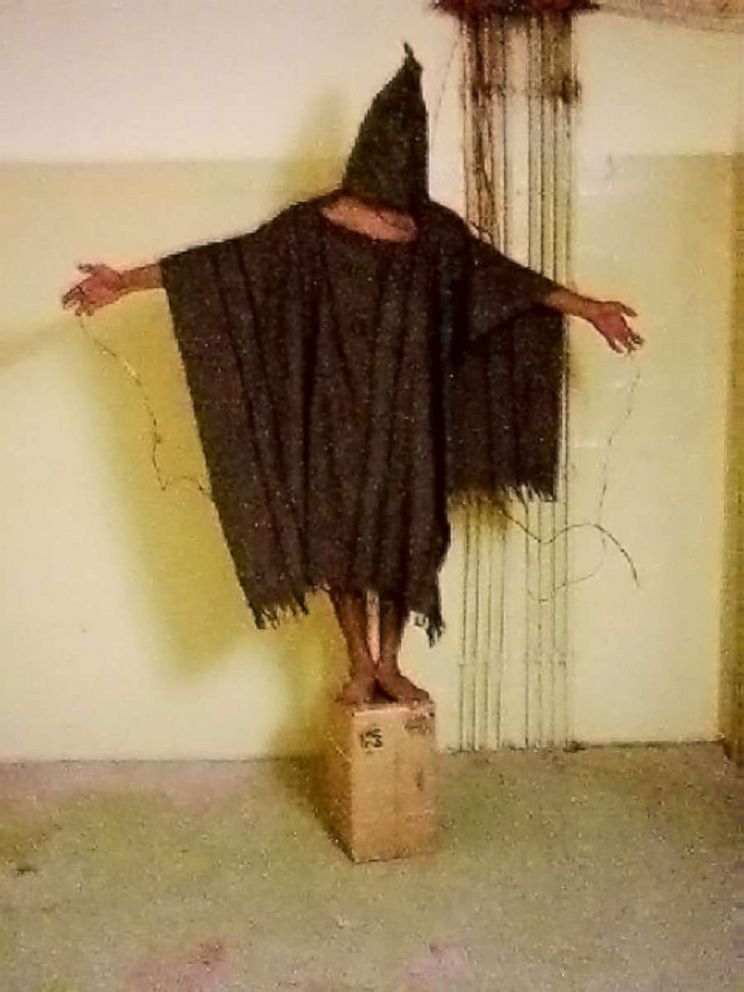
"When those photographs came out from the prison, that was an absolute earthquake of an event," said Martha Raddatz, ABC News' chief global affairs correspondent. "It changed things. It changed the world's opinion of what the American military was doing there and how they were treating Iraqis."
"When Abu Ghraib happened, I was shocked and embarrassed and mortified," said Card.
As American troops failed to find weapons of mass destruction -- leaving the Bush administration's predicate for war to slip away -- an al-Qaeda-led insurgency set in, inflicting a climbing rate of U.S. casualties by the summer of 2003, followed by mass-casualty bombings as the country descended into sectarian warfare.
Back in Afghanistan, American forces got bogged down building short-lived relationships with local tribal leaders, providing security for U.S.-led farming projects and the digging of wells -- all in an effort to win so-called hearts and minds. The allied mission taken over by NATO skidded as efforts to confront Taliban strongholds in outlying regions garnered few results -- and prompted substantial American casualties -- as the military pushed further and further out from the capital of Kabul.
Mission drift set in by 2010, when President Barack Obama's troop surge yielded few tangible results. Crowe remembered receiving orders at the time to just "hold on."
"If I had any high-minded ideals about joining the Army or, you know, fighting for country and democracy, I had given that up probably before we even hit country," Crowe said.
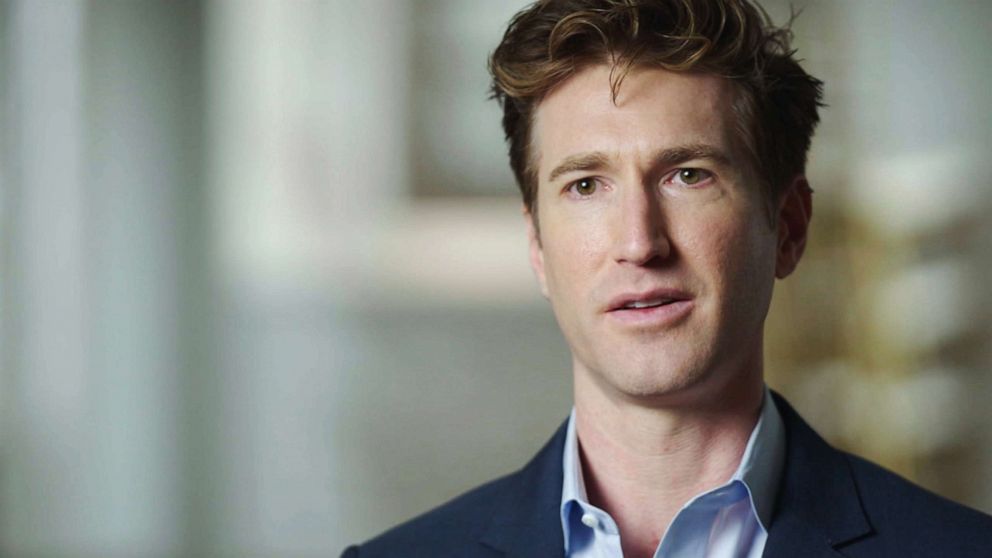
Looking back at his deployments in the Pech Valley, far from the dusty streets of Kandahar where al-Qaeda plotted the 9/11 attacks, Crowe struggles to identify a rationale for the missions he led there -- an opinion shared by countless other "Joes" who would talk about combat "down-range and outside the wire."
"Nobody should have died there. Nobody needed to die there. I don't think I ever saw a greater strategic purpose for being there," Crowe said. "'Hold on' is not a reason to send people across the world to take gunfire."
Many others never came back: More than 8,500 U.S. and NATO service members died in Iraq and Afghanistan fighting the War on Terror. Among many of those who survived, the total collapse of Afghanistan's government and its defeat by the Taliban last month -- with televised scenes of the helicopter evacuation of the U.S. Embassy in Kabul mirroring the 1975 evacuation of the U.S. Embassy in Saigon, Vietnam -- have reinforced a sense of anger and confusion.
"The troops who fought the 'forever wars' have grappled with questions over what it was all for -- even more so as they watched the pictures of Afghanistan's fall almost 20 years after the 9/11 attacks that started the wars," said James Gordon Meek, an ABC News reporter who, as a newspaper correspondent, was embedded with U.S. and Afghan special operations forces during deployments.
"Combat veterans are trying to 'pick up the pieces,' as one said, to heal their wounds, both visible and invisible, having spent their youth and spilled their blood in the mountains and the poppy fields, city streets and desert sands," Meek said.
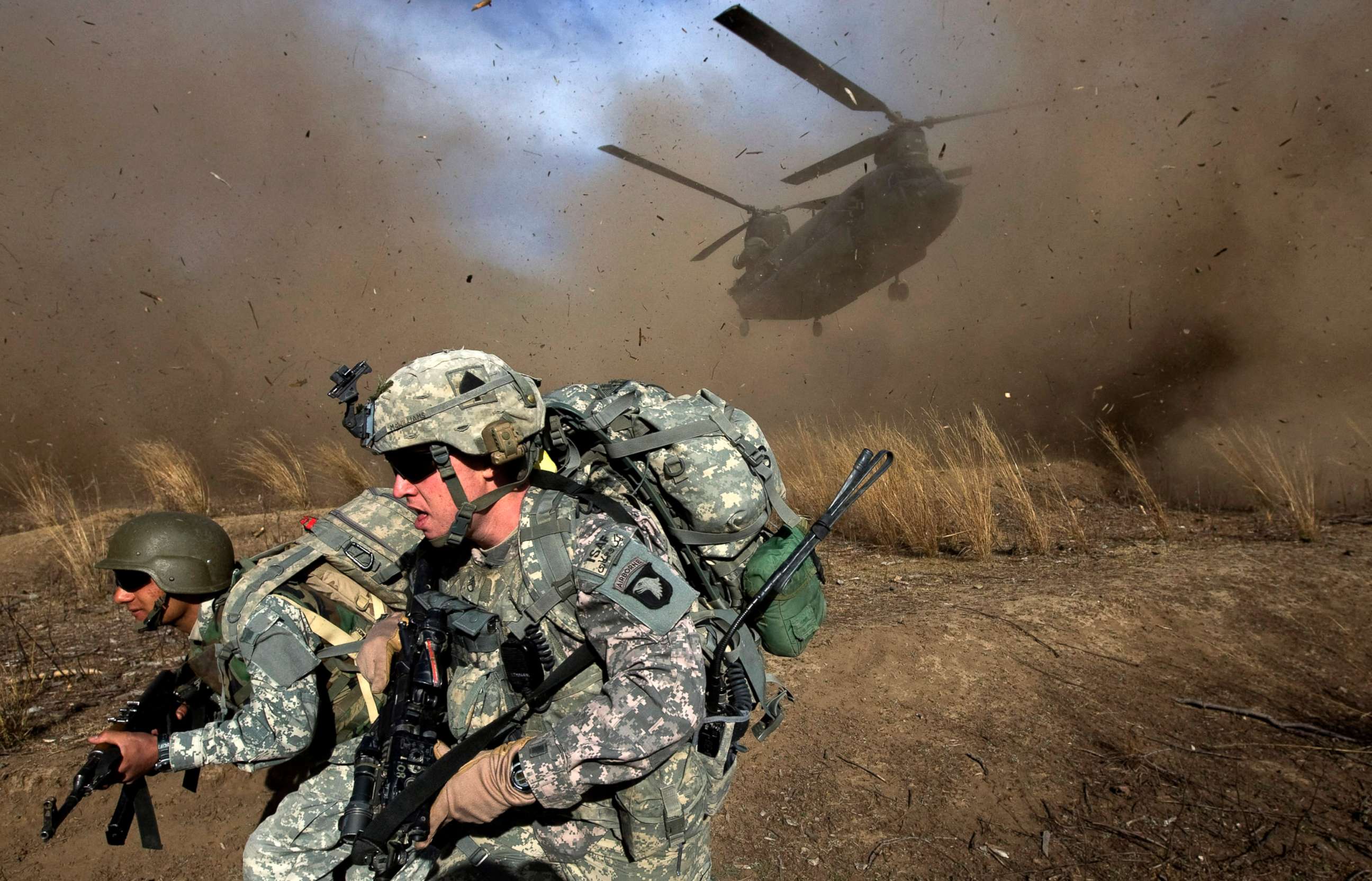
Others say they will never be whole after losing a loved one in wars they struggle to comprehend.
High school English teacher Dave Sharrett raised three sons with his wife Vicki, and was preparing to retire after 30 years on the job. On January 16, 2008, he was teaching Shakespeare's Othello -- a discussion of "the great contention of the sea and skies" -- when he got an urgent call from the school's main office.
His oldest son, at age 26, had joined the U.S. Army and volunteered for air assault training, and was assigned to the 101st Airborne Division which deployed to Iraq in late 2007.
A family friend waiting for him in the office delivered the news -- Pfc. David Hastings Sharrett II had been killed in action near Balad, Iraq.
That night Sharrett emailed Meek, the reporter and one of his former students: "Oh my friend. Dave was killed while on patrol today. My god."
Soon after, soldiers from Sharrett's son's platoon said there had been a cover-up. For four years, Sharrett and Meek teamed up to investigate the incident.
"Cover-ups in the military are rarely exposed," Meek said. "Finding accountability is even rarer because the truth often gets buried with the dead."
Their efforts ultimately led to three Army investigations, which concluded that during a gunfight with al-Qaeda insurgents, Pfc. Sharrett was shot and left for dead -- not by the enemy, but by his own lieutenant, who then left aboard a helicopter. The commander, who claimed not to remember the incident, was later promoted.
"What did the Army do?" Sharrett asked. "The Army decided, in its infinite wisdom, to give this guy a pass and to cover this up and protect everybody in the chain of command."
A drone video later showed that Sharrett survived an initial ambush by a group of insurgents. But as he fled the gunfight -- shooting down one insurgent and taking fire from others -- he was shot by the officer, then fell to the ground within an arm's reach. The officer then boarded a helicopter headed for a combat hospital.
"His lieutenant ... shoots him point-blank, fakes an injury, gets on a helicopter, flies away, leaves Dave lying on the battlefield wounded, where he proceeds to bleed for 90 minutes," Sharrett said.
Only after news reports emerged detailing Pfc. Sharrett's death and the cover-up did the Army remove the officer from active-duty service. The Army also revoked his service award -- a coveted Combat Infantry Badge.
"They left me behind, absolutely, and his brothers behind," Sharrett said.
For Americans back home, the death of Osama bin Laden in 2011 marked a turning point in the wars -- a much-needed justification for the blood spilled and the resources squandered. But for the men and women waging war, the turning point ended up meaning little.
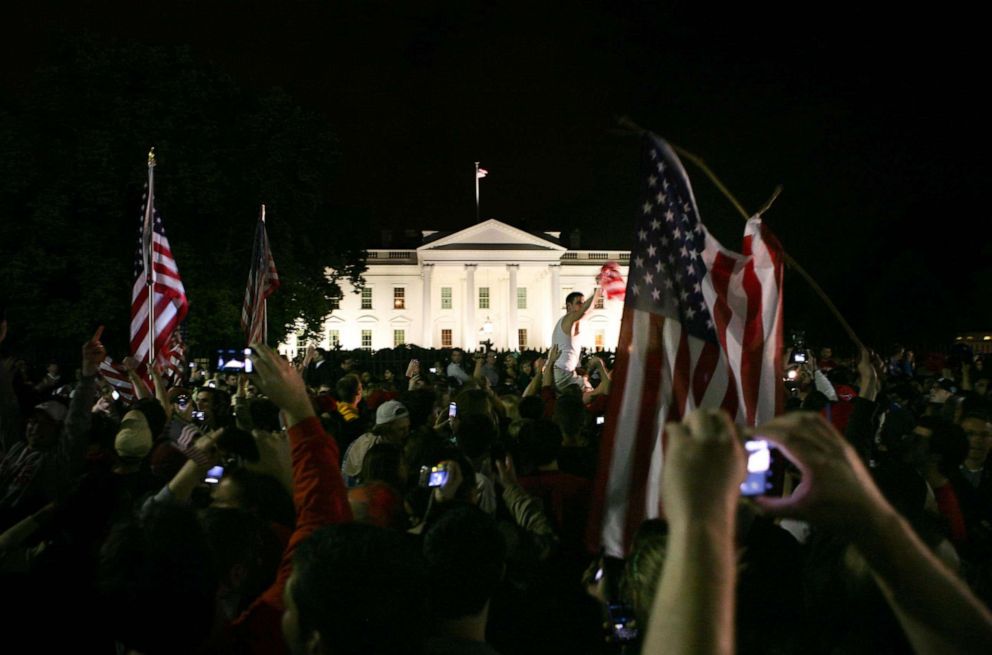
"It was one of the more bizarre days of my life when absolutely nothing changed," Crowe said. "The deployment went on as scheduled."
In mid-August of this year, as Loren Crowe watched Taliban insurgents re-take Kabul, years of pent-up frustration set in.
"Twenty years of war," he said. "A little over a month after the U.S. pulls out of Afghanistan, and we are right back where we started 20 years ago. Everyone should have seen this coming."
Dave Sharrett still struggles to answer one simple question: What did his son die for?
"The conclusion about going over there is, what a waste of a life," Sharrett said this week. "I'm just being honest."
"If I was sitting in front of a bunch of politicians who were contemplating doing, this I'd say, 'Let me tell you my story. Don't let this ever f***ing happen again.' And I think I'd leave the 'f***ing' in there for emphasis. And I mean that," he said.
ABC News' Jenny Wagnon Courts, Alexandra Myers, Olivia Rubin and Kate Holland contributed to this report.




